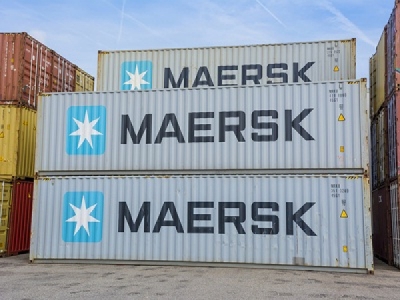
Posted on December 1, 2016
By Costas Paris, The Wall Street Journal
The shipping arm of Danish conglomerate A.P. Moeller-Maersk A/S is looking to buy German peer Hamburg Süd, people with knowledge of the matter said, a deal that would help Maersk Line boost its presence in global trade with Latin America.
Maersk Line, the world’s leading container-shipping operator, is interested in acquiring the entire Hamburg Süd business, which had $6.7 billion in revenue in 2015, not just picking up a few vessels, a person familiar with the matter said.
While it has bought or chartered ships from distressed peers like Korea’s Hanjin Shipping Co., which declared bankruptcy in August, Maersk’s last full-scale acquisition was in 2005 when it bought P&O Nedlloyd.
Hamburg Süd, the world’s seventh-biggest container operator in terms of capacity, is part of the Oetker Group, a family-owned German conglomerate involved in shipping, banking, food and beverages.
The Wall Street Journal last week reported that the Oetker family was discussing a sale of the shipping business as early as this year. A person involved in the matter said the family will likely make a decision on whether to sell this week.
Maersk, which moves about 15% of global seaborne freight, has publicly said it is looking for acquisitions to increase its market share during one of the most challenging times for the industry, with freight rates well below sustainable levels over the past two years.
Container ships that transport 95% of the world’s manufactured products are caught in one of the deepest ever down-cycles, marked by anemic global trade and a glut of tonnage in the water.
Those conditions have kicked off an unprecedented wave of consolidation, with many of the 20 biggest operators either joining alliances or merging to weather the crisis.
France’s CMA CGM, the third-biggest player, last year bought Singapore’s Neptune Orient Lines for $2.4 billion, and Japan’s three largest shipping companies said in October they would merge their container operations.
These pairings have left Hamburg Süd and Israel’s Zim Integrated Shipping Services Ltd. the only two container-shipping lines without a partner.
“Hamburg Süd’s strong presence in North-South trades makes it attractive to Maersk,” said Lars Jensen, chief executive of Copenhagen-based SeaIntelligence Consulting. “Maersk sees growth in refrigerated cargo like meat products from Brazil and Argentina and bananas from Ecuador, and teaming up with Hamburg Süd will give it a bigger footprint in that part of the world.”
Hamburg Süd said it had nearly 6,000 employees at the end of 2015, and owned and chartered 130 container ships.
According to data provider Alphaliner, the German company accounts for 3% of global container capacity, with the ability to transport 600,000 containers.
The value of its fleet is around $1.4 billion according to VesselsValue, another maritime data provider.
Hamburg Süd, which traces its roots back more than 100 years, previously explored a merger with German peer Hapag-Lloyd AG, but talks collapsed in 2013 over pricing and who would run the merged entity.
Source: The Wall Street Journal





